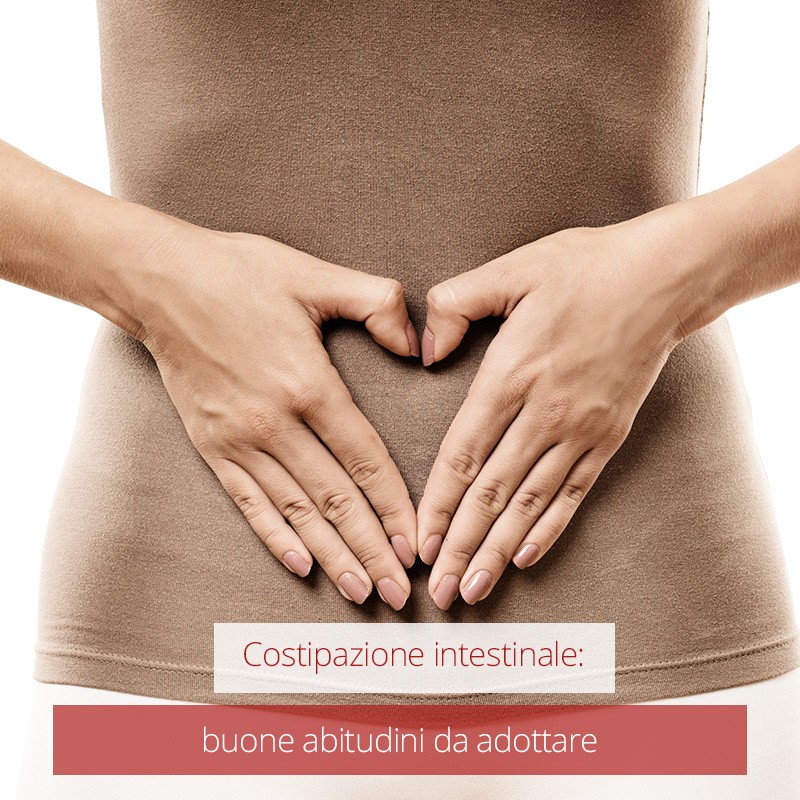
Constipation is a digestive disorder that can occur when bowel movements slow down and the intestine’s ability to remove waste from the body is compromised.
You should adopt certain healthy habits to help prevent constipation. Nowadays, it is a common condition among the general public due to their sedentary lifestyle and poor food choices.
Constipation can reduce the quality of life in those suffering from it because food residues trapped in the colon can cause inflammation, aerophagia and, consequently, lead to discomfort.
The biggest problem is that many people don't know how to prevent constipation or how to treat it and this leads to the emergence of a whole new series of digestive problems.
In general, you can keep your intestinal tract healthy by making just a few small changes in your lifestyle and adopting some routines that are good for digestion.
Today I want to give you my top 10 tips for preventing constipation.
1. Eat more fibre
First of all, I suggest you follow a balanced diet and eat food rich in fibre, which is essential for good digestion and healthy bowel movements.
Fibre will help prevent constipation and other digestive conditions such as:
- Irritable bowel syndrome;
- Diverticulosis;
- Haemorrhoids;
- Ulcers.
Foods that are rich in fibre include whole grains, chia and flax seeds, green vegetables, apples, pears, citrus fruit, berries and red fruit.
2. Limit your consumption of fat
Foods that are high in fat not only slow down the metabolism but also slow down digestion.
In other words, it takes more time for the intestine to digest them and, consequently, the likelihood of developing constipation increases.
Some of the food you should avoid include sausages, most of the packaged snacks available on the market today, foods that contain soy and palm oil, some condiments, pizza, hamburgers and hot dogs.
Try not to eat too much of these kinds of food, and remember that a balanced diet is always the best choice for your health.
3. Eat lean meat
Eating meat provides us with high-quality protein, but as I explained earlier, it is important to avoid fatty foods, so it is preferable to eat lean meat.
Specifically, my advice is to eat pork, chicken and turkey, but always in moderation.
If you make this change you'll soon see results!
4. Follow a strict timetable for meals
To prevent constipation you should have your main meals at the same time each day
Of course, it's not a serious problem if you change your routine from time to time but my advice is, in general, to stick to scheduled times for breakfast, lunch and dinner.
Following a routine will allow your gut to get into a rhythm and this will help to prevent constipation.
5. Drink more water
Drinking enough water every day is one of the most important things you can do to prevent constipation and poor digestion. Water binds to fibre to create softer stools, facilitating their passage through the colon. Also, drinking at least two litres of water a day is a good habit to get into and helps to keep your whole body healthy.
6. Get regular exercise
Regular exercise is essential to give the digestive system a boost and to prevent constipation.
In fact, when you keep your body active, it improves digestion and bowel movements and facilitates the expulsion of digested food from your body.
7. Add probiotics to your diet
Probiotics are living micro-organisms that, when taken in adequate quantities, regulate the bacterial flora in the intestine. In addition to preventing constipation and gastrointestinal infections, they also boost the immune system and help in the breakdown of heavier foods.
Some recommended sources of probiotics are kefir, white yogurt, kombucha tea, miso soup and pickled cucumbers.
8. Use natural laxatives
Natural laxatives are foods with digestive properties that improve bowel movements and prevent constipation. They are usually composed of substances that aid digestion such as fibre, water and antioxidants.
Some natural laxative foods are pineapple and papaya juice, lukewarm water with lemon or flax seed, kiwis, prunes and figs.
9. Take food supplements
Try taking food supplements that contain intestine-friendly ingredients such as digestive enzymes and certain aromatic herbs, which help to regulate your bodily functions.
Always remember that "supplement" does not mean "replace", so you must continue to follow a healthy and balanced diet even if you take supplements regularly.
10. Go to the toilet when you need to
It is detrimental to your health to hold back when you need to urinate or defecate.
Of course, sometimes you don't have access to a toilet during the day but, avoid holding back when you do. This will prevent the colon from becoming inflamed, resulting in pain and discomfort.
Are you suffering from constipation? Do you feel heavy or bloated? If you do, I hope that some of these suggestions will help to alleviate these symptoms.






